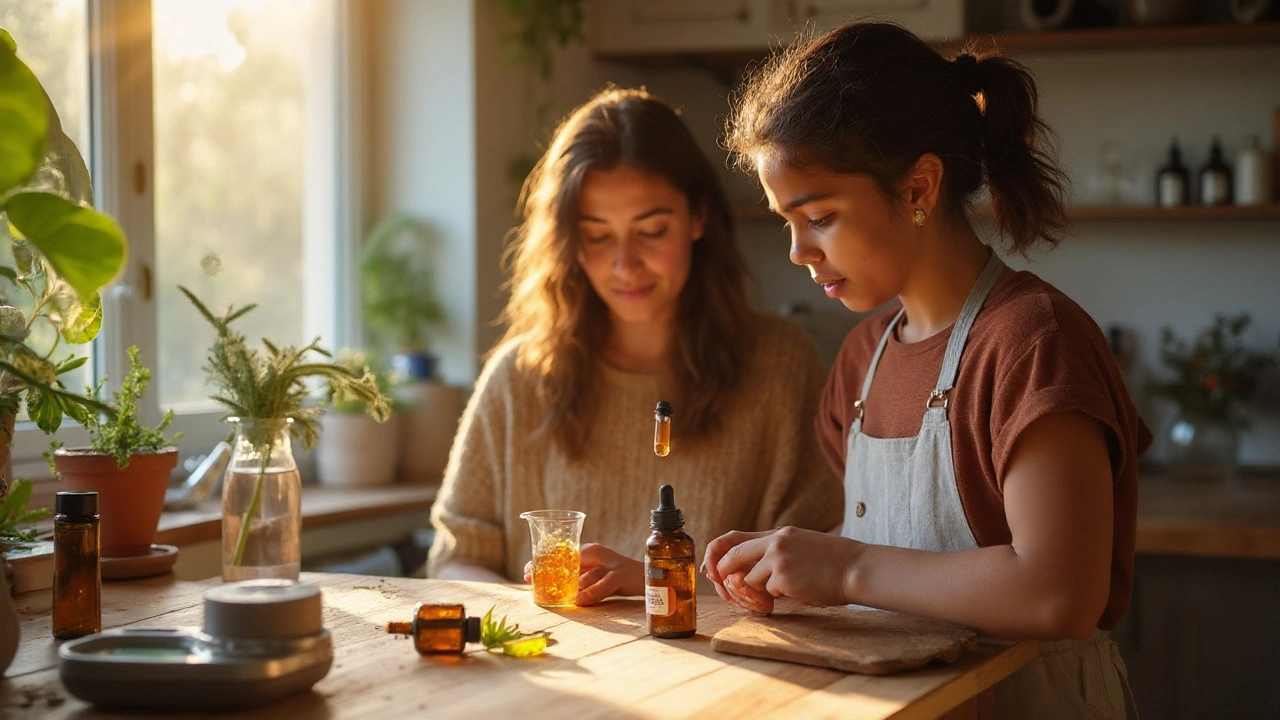
Niaouli (Niauli) Oil Guide: Immunity Support, Uses, Benefits & Safety
Curious about Niaouli oil for immunity? Learn what it can and can’t do, evidence-backed uses, safe dilutions, practical blends, and smart buying tips.
If you love the scent of lavender or the zing of peppermint, you probably already know that a little goes a long way. But using essential oils safely isn’t just about smelling good—it’s about keeping your skin, lungs, and overall health in check. Below are real‑world steps you can take right now to avoid burns, allergies, and other nasty surprises.
First off, never treat an essential oil like a food ingredient unless a qualified professional tells you otherwise. Many oils are too concentrated for internal use and can cause stomach upset or even liver damage. Stick to the directions on reputable product labels and ask your pharmacist if you’re unsure.
Pure essential oil is like gasoline for a fire—just a drop can ignite a reaction. Diluting with a carrier oil (such as coconut, jojoba, or sweet almond) spreads the active compounds and reduces skin irritation. A safe starting point is 1% dilution: one drop of essential oil per teaspoon (5 ml) of carrier. For sensitive skin, bring it down to 0.5%. Mix in a clean bottle, shake well, then do a patch test.
Patch testing means putting a tiny dab on the inside of your forearm and waiting 24 hours. If you see redness, itching, or swelling, skip that oil or lower the concentration further. This quick step saves you from painful burns later on.
Kids under six should stay away from most essential oils unless a pediatrician gives a green light. Their skin absorbs faster, making them more prone to irritation. If you must use an oil around children, keep the dilution at 0.25% or less and avoid direct skin contact.
Pets are even more sensitive. Cats lack certain liver enzymes needed to break down many terpenes, so oils like tea tree, eucalyptus, and citrus can be toxic. Keep diffusers out of reach and never apply oil directly on a pet’s fur.
Pregnant or nursing women should steer clear of oils that influence hormone levels or cause uterine contractions, such as rosemary, clary sage, and peppermint in high doses. Stick to mild scents like lavender at low dilutions if you need a calming aroma.
Other safety habits are simple but easy to overlook. Store bottles in a cool, dark place away from children’s reach—heat and light degrade oil quality fast. Always label homemade blends with the date and ingredients so you can track potency over time.
When using a diffuser, follow the manufacturer’s instructions on water levels and run times. Over‑diffusing can flood the room with volatile compounds, leading to headaches or respiratory irritation, especially for asthma sufferers.
Finally, buy from reputable brands that provide third‑party testing reports. If a product lacks clear sourcing information, it could be adulterated with synthetic chemicals that increase risk.
By keeping these basics in mind—proper dilution, patch testing, age‑specific guidelines, and quality sourcing—you’ll enjoy the benefits of essential oils without compromising safety. Feel confident experimenting, but always respect the power packed into each tiny drop.

Curious about Niaouli oil for immunity? Learn what it can and can’t do, evidence-backed uses, safe dilutions, practical blends, and smart buying tips.